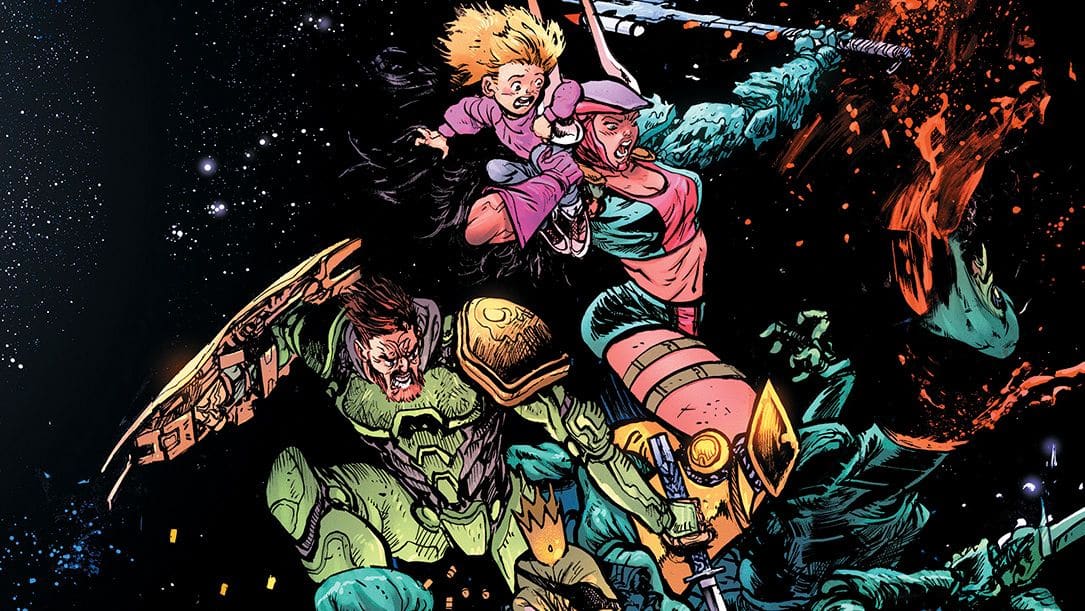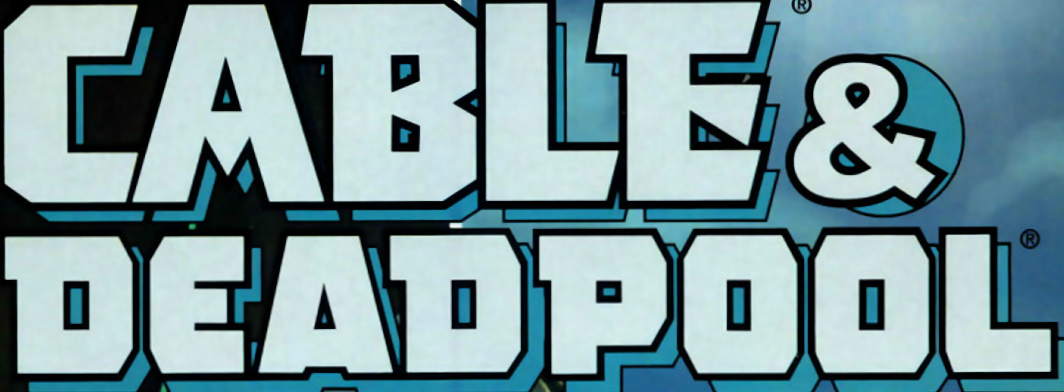Born in the late 1800’s, Victor Fox has a colorful place in the comics in the United States. Comics historian Christopher Irving has been researching Fox’s legend and his legacy, unravelling a mix of fact, fiction and folklore at the heart of Fox Feature Syndicate. Law professor Roger Skalbeck interviews Irving about the convergence of comics and law, the enigmatic legacy of Victor Fox and insights into Fox’s influence on the Golden Age of Comics.
Victor Fox was born Samuel Victor Joseph Fox on July 3, 1893, in Nottinghamshire, England. His family immigrated to the United States in 1898, first to New York City and eventually to Fall River, Massachusetts.
Fox’s life was a long series of business ventures and run-ins with the U.S. justice system. Over the years Fox was indicted for illegal stock trading, mail fraud, bribery, unpaid ship loans, and more. Some of this criminal activity is shrouded in confusion and mystery owing to inconsistent and convoluted documentation. All of these predate his entry into the world of comics publishing. During those years he lost copyright battles involving Superman, Batman and Robin and formed and folded countless companies to further his cunning comic empire.
In the interview that follows, law professor Roger Skalbeck interviews comics historian Christopher Irving about the life of Victor Fox and deep research Irving has conducted to help unravel this enigmatic icon of the Golden Age of Comics.
Despite legal setbacks throughout his publishing career, Fox never gave up his efforts to make a name in the industry. He is associated with some of the more famous names of the era, including Will Eisner, Jack Kirby, Joe Simon.
Christopher Irving is a Richmond-based comic book and popular culture historian. He has a BFA in Arts Education from Virginia Commonwealth University, an MA in Comparative Literature from Brooklyn College, and he’s finishing a PhD in Media Arts and Text at the Virginia Commonwealth University. He’s a regular moderator at GalaxyCon, and he’s written numerous articles and books on comics history. He’s an expert on the Blue Beetle, and is working on a project chronicling the life of Victor Fox and his role in the comics industry.
Roger V. Skalbeck is a Professor of Law at the University of Richmond. He teaches a course on Copyright Law, co-taught a course on Comics and the Law, and is a strong advocate for the value of comics for persuasive storytelling.

ROGER SKALBECK: I'm on the faculty at University of Richmond Law School. I teach a class on comics and the law and I'm really excited to chat with you about Victor Fox, especially because his story represents the convergence of comics, law, and some shady behavior. Please introduce yourself and tell me about the project you're working on.
CHRIS IRVING: I've been a comics historian and journalist since about 1997. I've written a few books and many magazine articles and most recently taught as an assistant professor in comics and media history. The reason we're talking is because of my research into Victor Fox who I would say was the crookedest of all comic book publishers in the 1940s, which is saying a lot. I've been researching him on and off for about 25 years at this point.
Fascinating. Let’s get just a little bit of background. One thing I found fascinating about Fox is that a lot of his biography seems difficult to piece together and almost self-fabricated. He seemed to like to tell stories about himself that in hindsight likely weren’t true.
Yes, Fox was quite a character, to say the least. I'll start with my personal introduction to Victor Fox and why I'm still pursuing him.
 Blue Beetle #1 cover artist, Lou Fine (Fox Features Syndicate, December, 1939)
Blue Beetle #1 cover artist, Lou Fine (Fox Features Syndicate, December, 1939)My first experience with Fox was in 1999. I decided that I would research the original Blue Beetle, who was first published in 1939 by Fox Publications. He was a cop who wore a chain mail suit of armor and looked a lot like The Phantom. In 1999, the Grand Comics Database was the most we had for research online at the time. Otherwise, it was comics history and journalism books and magazines. So, that research over a six to seven year period led to my first book, which was The Blue Beetle Companion [through TwoMorrows], the publishing history of the character all the way from Fox Publications' Dan Garret, the first Blue Beetle, to Charlton's Dan Garrett and Ted Kord, and up to DC Comics' then-new Jaime Reyes.
In doing research for that book, I spoke to a lot of people who dealt with Fox in the 1940s. I talked to Will Eisner for that project, including a little bit about the Wonder Man lawsuit, when DC sued Fox over similarities between his character Wonder Man and their own Superman. This had been very early in his career, when Will was packaging comics for Fox's new comic book line. According to Eisner, Fox wanted him to testify that Wonder Man was his own [Eisner’s] idea and not Fox’s plan to duplicate Superman, and Will refused. Since then, we've learned this is not entirely true.
I also discovered the 1940s Blue Beetle radio show, and that there was a daily comic strip a young Jack Kirby created for Fox. I even got to talk to Joe Simon. Through all this, I picked up a few little tidbits about Fox.
Through the census, I learned his parents were immigrants from Eastern Europe, who eventually settled in New York after Victor's 1893 birth in England. They made their way to Fall River, Massachusetts.
Now, what's interesting about Fox to me is that no one knew his history or even his fate: even Joe Simon, who had been an editor at Fox Publishing and was active in the comics industry when many weren't. Simon actually met Jack Kirby at Fox Publications, that's where they became colleagues, and they then jumped ship and went to Timely and created Captain America Comics. They were moonlighting while working at Fox.
And Fox Publications was in the same building that Detective Comics was in at that time?
Yes! It's the same building [480 Lexington Avenue].
One thing I discovered though through the help of a reference librarian was how Victor Fox died. I actually tracked down a copy of his death certificate from there.
How did he die?
He actually died of a heart attack. There are so many stories surrounding Fox, though. The guy was a swindler and a con man. There was a story where maybe he went off to find uranium in Canada.
Digging deeper into news clippings, we learned that Fox had been indicted in a boiler room scheme over stocks in the 1920s. He also bought many surplus ships from the government and then defaulted on the loans.
I’ve read some entries that suggest the name (Victor S. Fox) in some of those criminal records is the same, but there’s no 100% confirmation that it’s the same Victor S. Fox.
Exactly. His birth certificate originally was Samuel Victor Fox, and eventually it changed to Victor Samuel Fox. The records surrounding Fox’s life are unclear and often confusing. However, there is documentation that the Fox who bought the ships had been a costume designer, which comics Victor Fox had also dabbled in, expanding off his father's business in fashion and clothing.
The rumor had been that Fox was an accountant at Detective Comics. He saw the numbers for Superman and then went and started his own comics company by employing the business of Eisner & Iger to package his early comics. I didn't think that was true, it just didn't seem like it lined up. Later on, after my book came out in 2006, my friend Ken Quatro got a hold of the deposition from the Fox and DC Comics lawsuit, which revealed the full truth.
It turns out that Fox had been partners with Harry Donenfeld on an astrology magazine, and that was distributed by Jack Leibowitz (Donenfeld's co-owner in Detective Comics). That's where he saw Action Comics's circulation numbers, through the distributor receipts and records.
If you read the court transcript, there's a pretty detailed back and forth. They ask, where do they send them out? Where do they come to bring them back? And it sounds like all the receipts were pulled in the same location. So, he would have been seeing Action Comics numbers through that distribution and they were pretty impressive, and maybe he was jealous? Or saw an opportunity?
The comic book industry is all about copying ideas and even character archetypes. Where exactly did Fox go wrong or cross a line when copying characters? Why is he a crook and Bob Kane the hero who “created” Batman?
I don't think of Batman as being "copied" so much as the result of throwing a Shadow pulp in a blender with Dick Tracy. Or Jerry Siegel taking Philip Wylie's Gladiator as the basis for Superman.
The trick here, at least for me, isn't so much about Wonderman being a complete imitation of Superman: he really wasn't--by today's terms. When you step back and consider what a novelty Superman was early on, it makes sense that Wonderman would stand out in that then not-crowded field as a copy. I don't look at that case as being about Fox committing an egregious wrong any worse than any other person in the industry, but at the case being Donenfeld's way to exert control over someone who was not only emerging as his greatest competitor, but as a competitor who may have had insider knowledge of their own operation.
This is what’s funny. You flash forward many years, and we have this wonderful thing where public records have been cataloged better than they were back in the early 2000s when I started this research. I was able to track down the court documents from when DC sued him for the second time in 1942.
This is the Batman and Robin related one from Mystery Men comics?
Yes, it's mostly that Blackie, the Lynx's sidekick was a Robin rip-off. The Lynx had no established origin, unlike Batman, but Blackie his sidekick had many Robin characteristics. The Boy Wonder v. The Mystery Boy, the eye mask, etc.
It was from Mystery Men comics, I believe.
 Mystery Men Comics Vol 1 #1 cover artist, Lou Fine (Fox Features Syndicate, August, 1939)
Mystery Men Comics Vol 1 #1 cover artist, Lou Fine (Fox Features Syndicate, August, 1939)Yes! Mystery Men, which was the anthology comic book that had Blue Beetle as the star feature. Even Blue Beetle was something of a Green Hornet rip-off in his first appearance. The name itself: Blue Beetle… Green Hornet…
Regarding this second DC lawsuit [about Blackie from Mystery Men Comics], Fox hated Donenfeld by the time this suit occurred. Fox was very vindictive and also litigious. There is also another lawsuit that I found thanks to a tip from Ken Quattro. It was a short blurb in the New York Times that mentioned that Fox was taking Timely to court over a character called the Blue Blaze.
In that case, one of their unfair competition arguments was that Timely was using the title Mystic Comics, arguing that it might be mistaken or too similar to Mystery Men Comics. The Blue Blaze had nothing at all to do with the Blue Beetle except in appearance and the similar name alliteration. Additionally, part of Fox’s argument was that Blue Beetle is a media star because of the radio show's reach, which indicates his larger plans for the character.
After finding all that, I realized this is all only the tip of the iceberg. What else has Fox gotten into regarding the comic industry and lawsuits? With further digging, I tracked down a binder’s worth of Victor Fox news clippings.
So, these are news stories published contemporaneously with Fox's lifetime?
Yes. Through those I learned even more details about Fox. Then, I found his bankruptcy records, which run from 1942 to 1948. I have four two-inch binders that are only the bankruptcy records.
Presumably in there, there's lots of financial details that he would have never wanted to have to disclose but were required in the record.
Yes. The records include an audit of Victor Fox's business. This was what's called a Chapter XI, meaning it was a forced bankruptcy. Basically, Fox had several people he owed money to, including Holyoke, who was his printer. The court had to audit all of his records, which were an absolute mess.
What was the timing in this? Because the Wonder Man lawsuit was in 1939 and after that he allegedly declined to pay Eisner around $3,000, which would have been huge at the time.
This audit would have been around 1942.
I think Fox lived until 1957. Is that when he passed away?
According to his death certificate, he died July 3, 1957 at 11:31 p.m.. He was 64.
 Blue Beetle #2 cover artist Lou Fine (Fox Features Syndicate, June, 1940)
Blue Beetle #2 cover artist Lou Fine (Fox Features Syndicate, June, 1940)What's amazing to me is we started with this being a comics history figure who we knew hardly anything about, but because he was such a crook and because he was constantly taken to court, we have actual documentation from the comic book industry of the early '40s, from the cost of comic engraving, the cost of rental for his space… Everything is here, I need an accountant who can look over all this.
The problem is it wasn't only Fox Publishing that was bankrupt. He also owned the distributor Colonial News Company, as well as Swank Magazine, Elite Publications, and Fox Features Syndicate. He had Fox Publications, which is who really went bankrupt and then he had Fox Features Syndicate, which was his personal company. Basically, being president of all these companies, he arranged it so that Fox Publishing paid Fox Features Syndicate money to license their characters for comics.
That’s the story he gave. There’s probably some validity to that, it’s a lawyer’s trick. A smart trick, honestly, in order to protect Intellectual Property.
Regarding Fox’s business ventures, there’s one thing of particular interest to me. Have you heard of Kooba Cola?
Yeah! I saw something in the Eisner biography about it. It was developed and was going to be given away free with the magazine. But apparently they never actually made it.
This is the thing: No one had ever seen a bottle of Kooba. Joe Simon had never seen it. Will Eisner had never seen it. I talked to these guys! It turns out, Kooba Cola really existed.
It did? Fascinating. Because the story has always been that there was an insert or advertisement in comics, and you would take that coupon to a newsstand, where you’d receive a soda. But no one has ever seen the physical soda.
 Kobe Cola ad from interior cover of Blue Beetle, featuring children one can only imagine are predecessors for Charles Burns' Dog Boy
Kobe Cola ad from interior cover of Blue Beetle, featuring children one can only imagine are predecessors for Charles Burns' Dog BoyHe had so many companies that were all forced to file Chapter XI bankruptcy, that the court was able to consolidate it into one case. They were waiting for the holdout: Colonial News Company. Also named in the audit are Kooba Corporation, Kooba Bottling Company of New York, and Kooba Bottling of Miami. I have discovered that someone actually found on a Facebook group a Kooba bottle cap. There was a bottling company in Florida that made Kooba. And there was one in Hawaii, I want to say in Honolulu. So, Kooba was actually made and he put most of his money into it.
What they discovered in the audit was that he would just intermingle funds between his different companies: Fox Publications, Colonial News Company, Kooba Accounts, Kooba Consolidated (that's cash receipts and disbursements), Kooba Bottling Company of New York, and Kooba Bottling of Miami, Kooba Corporation, Swank magazine…
One of the things that Fox would also do, and Donenfeld did this as well with Detective Comics, is buy publishers that were struggling, charge Fox Publishing expenses on them, and then let the companies collapse. That way, he didn’t have to pay for any of those debts.
Sort of similar to the modern-day Red Lobster scheme!
Yeah, exactly! So, I'm just gonna read you part of the audit:
“We call your attention to the fact that the books and records were carelessly and poorly kept and not in accordance with sound accounting principles. Corporation identities were merged and interlocked, which caused considerable confusion in ascertaining the full description and meaning of entries made. As a result of this, we were required to trace entries through the various interlocking companies to determine the nature of the disbursement and disposition thereof. The books of the companies were kept by many bookkeepers because of frequent turnover of employees in the bookkeeping department.”
Fox was notorious for screwing people over and was infamous for not paying his talent. I wouldn't be shocked if many accountants and bookkeepers had to walk away for that reason.
Is it more likely that Kooba-Cola was actually a product that was created at some point, or was Fox using the innocuous name “Kooba-Cola” to further mask his crooked business dealings? Is it possible he just wanted a subtle name for businesses he could use to move money around and commit fraud and a cola company wouldn’t draw suspicion?
That's an interesting theory. It could have been a cover operation, but I haven't yet found any indication that it was. It comes across as more of a failed business scheme of his. The name Kooba may have roots in Cuba, where Fox allegedly had ties (but, again, I haven't found anything to back that up). I know the court did actually sell off empty soda bottles as part of the bankruptcy, but it remains unknown whether they were generic or branded for Kooba.
I would really need to dig even deeper into this to know for sure.
He often had these debts, and he just ignored them, right?
Absolutely.
 Blue Beetle #5 cover artist, Chuck Cuidera (Fox Features Syndicate, December 1940)
Blue Beetle #5 cover artist, Chuck Cuidera (Fox Features Syndicate, December 1940)Fox really wanted to make money from outside media. Blue Beetle had a radio show, which was produced by Jean Grombach, who had a recording service for radio shows for syndication. What Grombach would basically do is record them on disc, and then send them out to radio stations.
There was also the Blue Beetle daily strip, which was originally written and drawn by Jack Kirby and completely separate from the comic books. Joe Simon says Kirby wrote it, so I'll believe him. After Kirby left Fox, the strip lined up more with the comics and would be reprinted in issues of The Blue Beetle.
Then he had a Blue Beetle movie serial which was actually in the process of getting produced, but the producer died during surgery. His widow took over and, eventually, Blue Beetle's intended slot went to Columbia's Batman serial.
Regarding Fox and this range of overlapping businesses and companies, was it Bruns Publications who was the defendant in the Wonder Man case? They published just one issue of Wonder Man?
Bruns was Fox’s original company. Yes, they did Wonder Man in Wonder Comics #1. Bruns was formed on December 29, 1936, per the Timely lawsuit. He changed the name to Fox Publications on June 14,1939, per the Blue Blaze lawsuit, while Fox Features Syndicate was a separate company.
Holyoke took over publishing The Blue Beetle in 1942. They were also the printer Fox owed money to. Basically, as part of the bankruptcy, Holyoke agreed to publish Blue Beetle to earn their money back that Fox owed them. This is part of why his bankruptcy took so long: Fox was acting not only as the bankrupt party, but also as the chair of Fox Features Syndicate, which was a separate entity from Fox Publishing, who had gone bankrupt.
And Fox Features Syndicate was the company doing all the licensing, etc.?
Yes, Fox Features Syndicate owned the IP. Meanwhile, Holyoke was still trying to get the paper allotment that they would have had for Blue Beetle for their own publications. On top of that, the rules for allotments from the War Productions Board, which would allow publishers to have paper, redefined what a publisher qualified as. And they viewed Holyoke only as a printer.
On top of it, Sherman Bowles, who owned Holyoke, became Victor Fox's arch nemesis. While Fox was publishing Blue Beetle again, he was still engaged in bankruptcy court and had to account for all of the money he was spending and how he couldn't have generated any profit on Blue Beetle to pay Holyoke the creditor back with. Meanwhile he was deducting thousands of dollars on “entertainment expenses.” And it got ugly.
I've heard many stories that Fox was something of a player, right?
He liked sex workers, at least that's what I've heard from a couple of people, including the late Chuck Cuidera, and there's an instance with the Fox cipher in Eisner's The Dreamer, as well. Fox claimed he was courting printer companies, taking them out for drinks, entertaining them, etc, because he claimed Holyoke made Blue Beetle a bad word in the industry, and he needed to restore faith with the printers and distributors. In other words, he tried to place the blame at the feet of Holyoke.
Blue Beetle’s history is almost as confusing as Fox’s, regarding creation and origin.
Okay, so there's origin to the origin story.
Yeah, origin to the origin. Blue Beetle going way back was created through the Eisner & Iger shop. The creator used the pen name of Charles Nicholas, who Will Eisner thought may have been John Celardo.
But Charles Wojtkoski claimed to have created him, and he also worked at Eisner & Iger at that time. I actually have a copy of his draft card where in 1941 or 1942 he put down the created Blue Beetle. So, there's an actual documented claim for that.
What I think is so important about all of this work, and I think it's why we need to find as much of this documentation as possible, is comics history for that era is mostly based on recollections by creators. Look at what happened with Will Eisner and Wonder Man, where he claimed to not have backed up Fox in court. And then, we saw the court documents, where it felt like the lawyer was successfully pulling things out of Will.
I'm not trying to disregard any of these creators. But gosh, I don't remember what I was eating for lunch when I was 21, so I can't realistically expect someone in their 80s to remember in vivid detail. These documents are the only contemporaneous documentation we have of this era, other than news reports. With these records I’ve found, I have everything from the cost of his rental space to chemical photo engraving. $700 for four color plates for a 32-page comic book. We have the expenses here. We have a sense of what production costs. I feel like this is really a gold mine, where we can learn even more about the industry's inner workings.
I've got one more thing to share with you. So, this is a list of addresses…
Are these bankruptcy liens or debtors or something like that?
There was a safe in Fox's office with all of the envelopes from people who had sent 10 cents for an exclusive or money for a subscription. Fox’s estate had to hire people to actually reimburse these folks, everyone on this entire list.
Samuel Jacobs who was taking care of the estate said this on October 5th, 1942:
“Petitioner praised for the entry of an order permitting him to retain the general letter company of 228 East 45th Street, New York City at a total cost to this estate, including postage of $71, for all of which no previous application has been made.”
There are people who lived here in Richmond, VA on this list for reimbursements. We have someone from South Africa. Someone who lived at Central Park South, New York City. These addresses show just how far-reaching Fox's comic books were.
Early in the comic industry, there were many publishers trying to make a name. Many were absorbed fully into Marvel or DC. Others had their IP/characters purchased and absorbed. From Fox Features Syndicate, was Blue Beetle the only character of note to be absorbed into one of the big players around today? If not, what else did they bring into the world that we still benefit from? If so, what was it about Fox comics that weren’t desirable or built to last?
 Blue Beetle #6 cover artist, Chuck Cuidera (Fox Features Syndicate, April 1941)
Blue Beetle #6 cover artist, Chuck Cuidera (Fox Features Syndicate, April 1941)He was, but only from a roundabout way. After Fox Features went bankrupt in the early 1950s, Blue Beetle found his way to Charlton Comics in Derby, Connecticut. Charlton wasn't the most ethical company, with rumors they were mob run. The founders, Levy and Santangelo, actually formed the company over a handshake deal when they were cellmates. No joke.
Through whatever means, they had Blue Beetle in the 1950s and rebooted him from the cop version of Dan Garret to an archaeologist with a magic scarab named Dan Garrett (with two 'T's'). Then, when Dick Giordano was editing the Action Heroes line, Steve Ditko worked his magic in creating the Ted Kord version of the character and killing off the Dan Garrett one.
DC, from my understanding, out-and-out bought the Charlton characters in the '80s. Which is where we are with him. So, the Fox version of the Blue Beetle is not at DC, but the Charlton versions are--along with their own version, Jaime Reyes.
As for not desirable, I can't say if their books were necessarily any better or worse than any other comics coming out at the time. I can say, however, they did get creators like Matt Fox on Phantom Lady and Blue Beetle, so there's some gold in them hills. However, it seems like their heyday was in the early '40s, when Fox was building a formidable (in output) comics line built with characters mostly created through Eisner and Iger.
Getting back to Wonder Man, the thing that I thought was most surprising from a lawyer’s point of view is that within a month of it getting published, we've got a trial court decision. And a month later, we're already at the court of appeals for the Second Circuit. This is unheard of. Usually this is going to be years and years of litigation, but within weeks, DC seems to have gotten an injunction like it wanted. We never saw issue two. Were they going to do issue two? Was Eisner so opposed to doing that?
I haven't heard anything about that, and what's really fascinating to me is that Fox was putting a lot of comics out. I'm reading every Blue Beetle story right now, but I'm going to eventually read all of the Fox Publishing comics.
I think that Donenfeld saw him as a threat, and there must've also been a personal aspect to it, because Fox had been his partner with the astrology magazines and all of a sudden was ditching him to try and make money off Superman. I think that Fox was the first person outside of possibly Leibowitz and Donenfeld to recognize the marketing and media potential for “the superhero,” in Superman.
Were lawsuits a regular thing for Fox? It seems like the ones that we know most about are the Wonder Comics suit and the one involving The Lynx and Blackie, Batman and Robin derivatives. When he gets sued before his comic career is it about copyright infringement or business practice?
I will say the Lynx lawsuit was an interesting one because DC sued Fox for ripping off Batman and more specifically Robin. Fox retaliated and started a separate lawsuit against DC claiming they ripped off his comics.
Oh, I see. So, it wasn't a declaratory judgment. It was counter-suing.
The other lawsuits were mostly for embezzlement.
Okay, so it was financial crimes.
When he was a publisher, he claimed that he had come from Wall Street, but I suspect that was just another con. His first indictment on record is 1914, when he was charged with a larceny of $2,350 from Miss Rose Sullivan.
Yeah, so he would have been about 21 at the time. $2,300 in 1914 was a lot of money.
It would be over $72,000 today. That is a lot of money then, and he was held for a grand jury. He got in some pretty serious trouble over time, some of it's been documented in news clippings that I found, but the Wonder Man suit was like just another Tuesday for him.
Fox's father had also actually been taken to court for embezzlement at one point, and then libel, but nothing compared to Victor Fox. The more I learn, the more I'm also fascinated by his family dynamics, some of which were revealed in Meryle Seacrest's Stephen Sondheim biography (Sondheim's mother was Fox's sister).
What we do know about Victor's family in Fall River is illuminating to the kind of man Fox was. It came out some years ago that he's actually the uncle of Stephen Sondheim, his sister was Stephen Sondheim's mother. Merle Seacrest, who was a close friend of Sondheim and wrote a book about him, revealed they didn't know anything about Fox. I think ultimately, he was the black sheep of the family.
The family had actually been pretty well to do at one point. His father owned The Fashion, which was this really high class clothing store, mostly for women. They opened in 1910. After his parents moved to New York, it was left in the hands of Victor and his brother-in-law. Shortly after that, The Fashion was filing for bankruptcy. Fox was petitioned in 1913, so I believe that it was Victor who ran into the ground.

It's fascinating to hear this range of things, things even from when he was in his 20s.
Something interesting about the Wonder Man case, but also the subsequent federal one, is that they occurred not too long after this case called Nichols v. Universal Pictures (1930). Nichols actually has nothing to do with the comics industry, but Judge Learned Hand decided this case, who's a pretty well-known name and was on the Second Circuit Court of Appeals.
It was basically a suit between two competing creators of theatrical works. They were dramas that were done in New York City and the themes in them were relatively similar. Nichols was actually a binding precedent in New York during Fox’s suits. At the heart of it, it said you can't copyright ideas, and you can't copyright themes or scenes a faire, which are sort of like “tropes” in the stories. Even in spite of that Fox lost his cases, because it sounds like there was direct copying of the characters. Looking at some of the exhibits that I've seen for a panel by panel comparison it's pretty obvious they ripped DC off.
Oh yeah, and it's even more obvious with The Lynx when you get to see that artwork.
In hindsight, do you think that Fox was good for comics? Or do you think it was just circumstantial that he helped bring characters like Blue Beetle into being?
 Blue Beetle #7 cover artist, Chuck Cuidera (Fox Features Syndicate, June 1941)
Blue Beetle #7 cover artist, Chuck Cuidera (Fox Features Syndicate, June 1941)That's a good question. I honestly do think he was good for comics. He was a terrible human being, but I wonder if he didn't galvanize Donenfeld and Liebowitz into being a little smarter or tougher, or maybe realizing what they were sitting on more with Superman. I don't know if he necessarily gave them the competition that he wanted to, but I feel like he was enough of a threat of competition that it made them kind of evaluate what they had. I think he's great for comics history because of all the documentation he initiated with his actions. For us historians, it’s great to have that record to learn about the wider world surrounding it.
I often wonder, had the Blue Beetle movie serial been made, and if Fox actually had been a competent enough businessman, we could have had a Blue Beetle TV show in the '50s like Adventures of Superman. I think that Fox had the potential to be a major player, because he also had a plan for taking superheroes across media.
The licensing thing was something. The Spirit, I don't think was ever licensed strongly.
Will Eisner told me someone--maybe Columbia--wanted to do a movie serial, and he just wasn't interested. DC did most of the licensing in the industry although Marvel did have the Captain America serial (which was not at all like Captain America from the comics), but DC had Superman and Batman, Vigilante, Congo Bill, and Hop Harrigan coming out through the 1940s.
I wonder how much of the failure of Fox Publishing came from Kooba-Cola, and if Kooba-Cola was kind of the albatross. It makes me feel like Fox may have wanted to actually go into the soda business and use comics as a way to do that. I read one theory that because Kooba-Cola had vitamin B12, maybe they were trying to tie it in with vitamin 2X, which was the vitamin that Blue Beetle took before going out to fight crime.
Also, if you're looking for an industry with a high degree of consumer affiliation and also literally consuming, sugary cola makes sense. You might buy six or seven of those in a month, or a week, right?
Yeah. Again, I've only been able to scratch the surface here. I’m currently writing this dissertation on adaptation and superhero radio shows. Once I get that out of the way, I'm going to be able to just make this my full-time research.
One other thing on my mind is, what was Fox's influence on the industry and where do we see it? It’s great to see the breadth of publications and contributions. The Eisner biography seems to suggest that the money that Eisner lost from this Wonder Man debacle with Fox was sort of the catalyst to go on his own. Break from Iger and go in his own direction. And then, you know, The Spirit comes after that.
I would have to look at that. I honestly haven't read that biography. As you know, there's only so much reading we can do. My impression from Will was the Register and Tribune deal to make The Spirit was what did it.
Will was an enterprising guy. I mean, Eisner & Iger was his idea, according to him. He was notoriously cheap. The thing with Eisner that fascinates me is he was a businessman who grew into an amazing creator. I teach his work when I can, but he was a businessman and we still think of 1940s Will in terms of the creator he was in his later years.
He once got all of these long, stable Chinese paint brushes on a deal. He got a huge box of them. And the artists wondered how the hell they were supposed to ink with these long brushes, and it became like a challenge.
He could draw and illustrate amazingly well.
He could cartoon really well. That's what I think is lost on some of the newer generation with this work, because his method of expressive cartooning may be too far removed from what they're reading now. When Will came back with Contract with God, he really reinvented himself as a creator, and he advocated for so much.
I have nothing but respect for Will: He was always good to me when I was in my early 20s and always took the time. I think that it's too easy for us to impose this idea of Will Eisner in the 1940s as this stately older cartoonist, but was such a young guy back then! He was in his early 20s.
And when he was kind of browbeat by Fox into copying Superman with Wonder Man, he just needed to get food on the table, right?
I mean, yeah, it was business. It was a job and I'm pretty sure it was all Fox's idea, at least from everything I've seen.
There's a quote from Fox, during the deposition on Blue Beetle (from the bankruptcy). This is March 5th, 1946. “Donenfeld has a feature, which is identical with the Blue Beetle. The name of the feature is The Guardian, and it is the exact takeoff with the two policemen, which is my original of the Blue Beetle feature. And he made studies of it for us. And he has given me reports and we are ready to commence the action, not only against that company, but two others that are also infringing upon the feature. As soon as our council believes we've got this matter cleared up, if ever.”
Basically, he was litigious. The lawyer who looked after Fox’s copyrights and trademarks would basically look at comics and try to drum up business for himself by getting Fox wound up. This is my impression. But you know, this is after Donenfeld beat him twice in court, so that's not to say there aren't more lawsuits that he enacted in the late 1940s that we don't know about.
What was the eventual end of the Fox Business “empire?” Did most of it collapse or lapse, legally, after his death? Were any of his businesses absorbed into something else that survives today? Do any still exist?
Fox eventually became owner of a color press in Wilkes-Barre, called Central Color Press, with an office address in New York and plant in Pennsylvania. Both went bankrupt around 1950, with Fox Feature listing assets of $30,000 against liabilities of $775,000 . This is according to a news clipping in the Standard Sentinel of August 2, 1951. My hope is to uncover those bankruptcy records and learn of how it was all settled.
Interestingly enough, Blue Beetle remains Fox's sole legacy, eighty-five years after he started in comics.



















 English (US) ·
English (US) ·